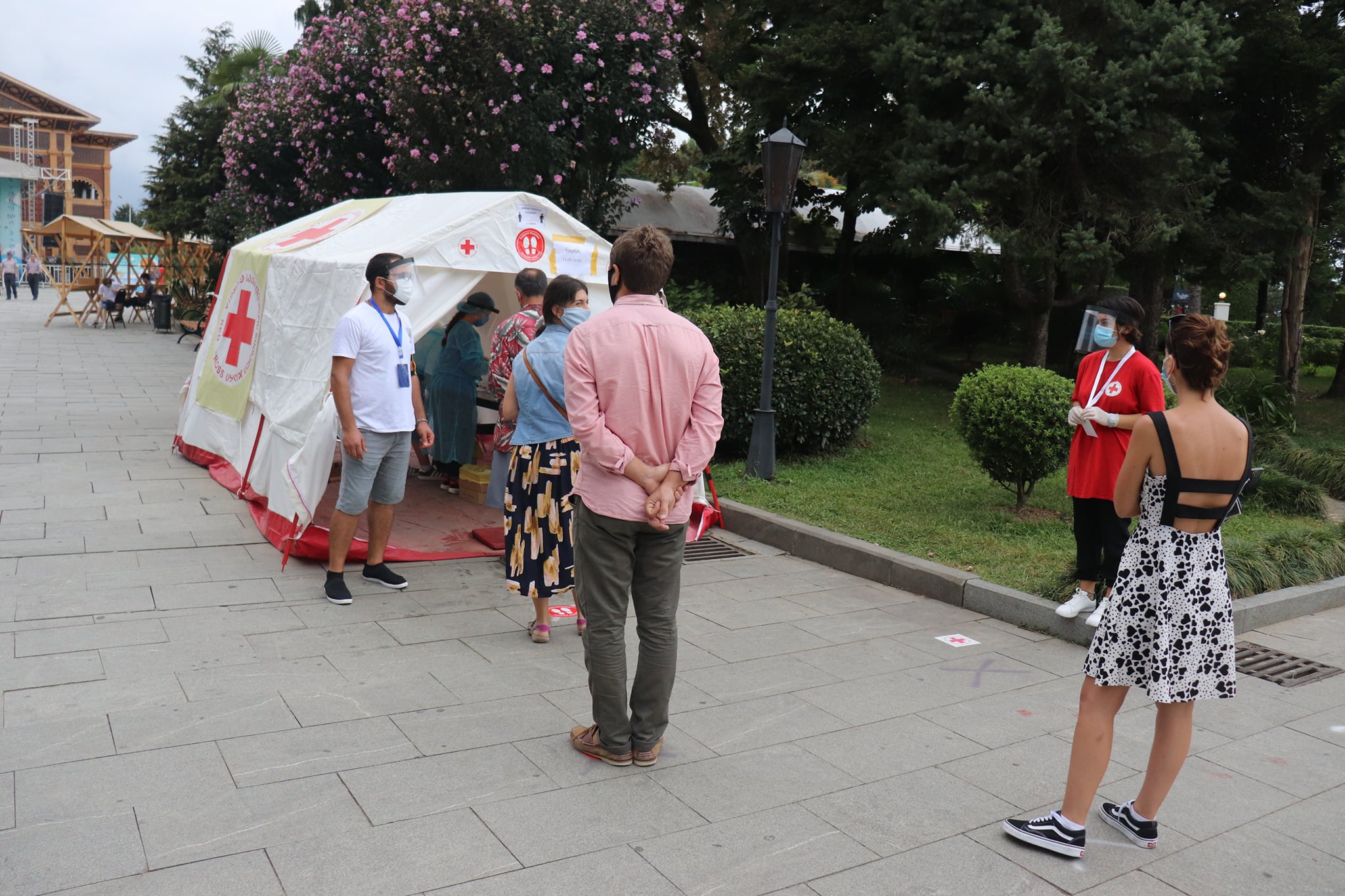
Georgian Prime Minister Giorgi Gakharia has announced that quarantine on arrival in the country will be reduced from 12 to 8 days.
Gakharia announced the decision would come into force on 15 September after chairing the inter-agency council to tackle the coronavirus spread on Monday. The government previously reduced quarantine from 14 to 12 days in mid-August.
Quarantine has been imposed over self-isolation for the vast majority of Georgians returning to the country in a bid to prevent new cases of COVID-19 being imported from abroad.
While non-Georgian residents of Germany, France, Estonia, Lithuania, and Latvia have been allowed to enter Georgia without restrictions since early July, this has not applied to Georgian citizens travelling from those countries leading to accusations of discrimination from some.
According to the updated regulations, the government would mandate returnees be checked with polymerase chain reaction (PCR) testing twice after being released from quarantine on 9th and 12th days after arrival in order to cover the entire period of possible asymptomatic infection.
If the virus was detected on 12th day, Health Minister Ekaterine Tikaradze said that patients could be treated in quarantine zones instead of hospitalised.
PM Giorgi Gakharia said the changes would ensure ‘more freedom’ for Georgian citizens to ‘return to their families quickly and healthy’.
The government also announced on Monday that from 15 September, all foreign citizens entering the country would be required to have tested negative with a PCR test 72 hours or less before arriving.
According to official numbers, Georgia has registered 1,684 cases of coronavirus to date, including 1,315 recoveries and 19 fatalities. There are currently 5,882 people in quarantine.
‘Awkward’ or ‘discriminatory’
The government’s decision on Monday came four days after Amiran Gamkrelidze, Director of Georgia’s National Centre for Disease Control, admitted that mandating quarantine for Georgian citizens while allowing in others was problematic.
Gamkrelidze has justified the practice as ‘necessary’, insisting that all those caught violating self-isolation were ‘compatriots’.
Gamkrelidze also argued that it was easier to trace the movement of foreign citizens in Georgia than Georgians eager to see their relatives upon arriving.
‘This is an awkward issue which needs to be solved’, Gamkrelidze said in an interview with TV Pirveli on 3 September.

Giorgi Kandelaki, an MP from the European Georgia Party, has been among the most vocal critics of quarantine regulations, accusing the government of a ‘discriminatory’ and ‘selective’ approach to the issue.
Kandelaki claimed on 1 September that individuals and families ‘close to government’ had been able to enter Georgian with only 24-hour quarantine and simultaneous testing, even after returning from ‘unsafe’ countries like Russia.
Besides discrimination, the ‘draconian’ rules, according to Kandelaki, also blocked ‘tens of thousands of emigrants’ from returning to vote in 31 October elections.
[Read more on OC Media: Election campaign officially kicks off in Georgia as poll date set for 31 October]
In July, Georgian rights group the Partnership for Human Rights (PHR) successfully litigated two cases against quarantine rules in favour of self-isolation, citing a lack of adequate care for children.
Schools to resume with exceptions
Despite recently witnessing a spike in new daily cases, the authorities have said that schools and universities would still reopen on 15 September.
The exception was in the Black Sea coastal region of Adjara, where the government has announced that distance learning will continue in Batumi and Kobuleti until October.
Officials have described the situation in Adjara as a ‘micro-explosion’, with 20 of the 34 new cases confirmed on Monday being in the region.
Last weekend, Georgian Public TV channel Adjara suspended broadcasting for two days after one of their employees tested positive for coronavirus.

As of 7 September, Georgian medical authorities had confirmed 156 cases in Adjara.
Gakharia also warned on Monday that rules during weddings and funerals in closed spaces would be ‘strictly enforced’. The announcement came days after medical authorities scrambled to break the chain of virus transmission which originated at large social events in the regions, including in Adjara.









